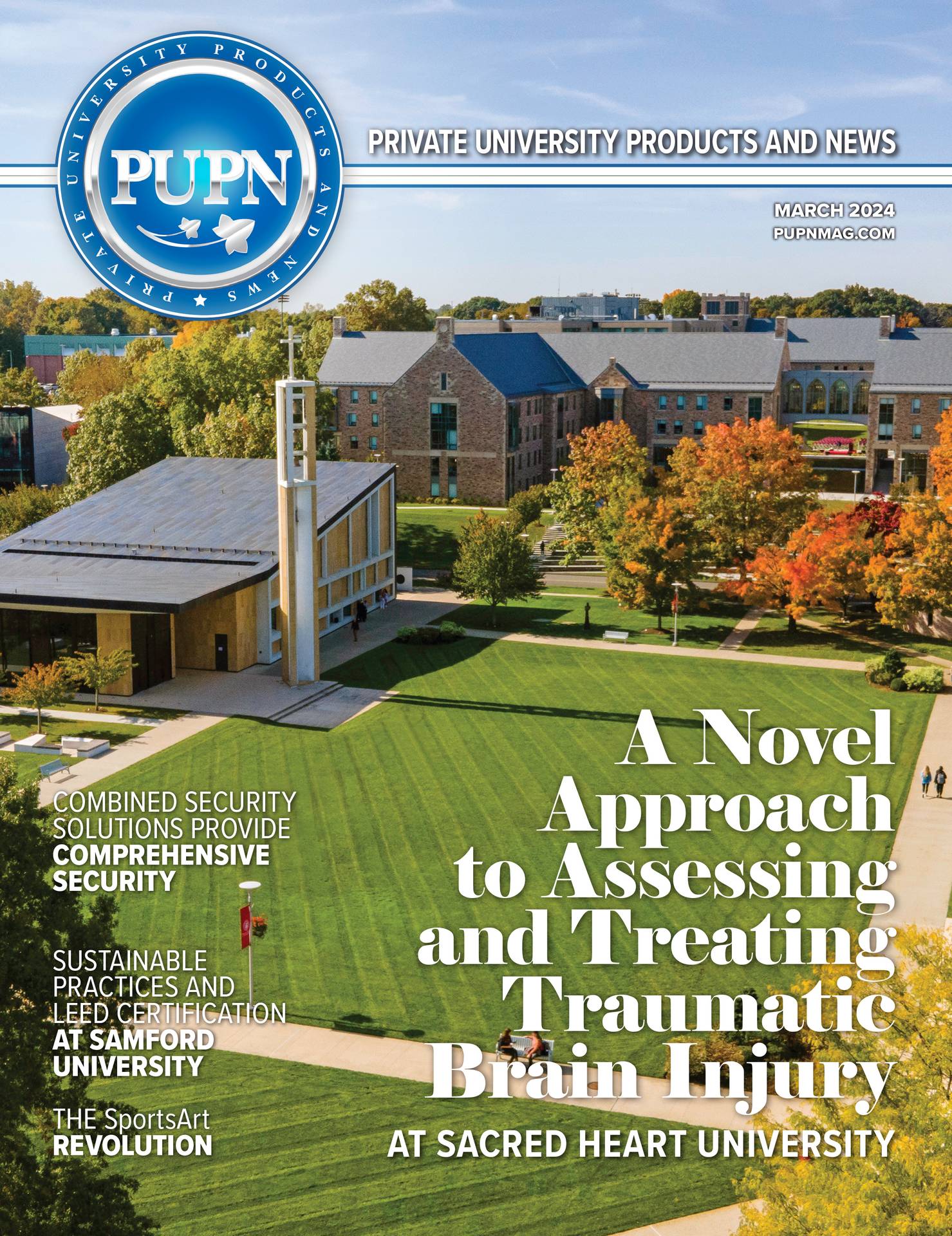At the national level, they came in fourth in 2014 and 2013, and third in 2012 and 2011. Just last year, they finished second in the nation. Clearly, Chilabato has a winning strategy.
Facing the Giant
Professor Oscar Chilabato is incredibly proud of the work his students have been doing in the program where he has taught for the past eighteen years, in a place where students have proven to be successful inside and outside of the classroom. Though he explains that JWU Advertising is certainly not a big program by some standards, it is undoubtedly a quality program where “the proof is in the pudding.”
For the last five years, his students have placed in the top four of the National Student Advertising Program competition. In a field that begins with 150-200 colleges, students first compete by district and then go to semifinals; eight ultimately compete at a national level. Every time they are in the top eight, he adds, “It’s a win for the program.”
Students are able to work at case studies based in the real world, creating an advertising campaign that includes digital strategy and all relevant research. “They build their portfolios and use that to secure jobs—good jobs,” Chilabato adds. In terms of going to competition from a smaller university, Chilabato notes there’s “a little bit of David and Goliath,” considering they are coming from a school most known for its culinary program.
When people think of JWU, he adds, they “don’t really think business— especially advertising.” However, a few years of success have given them tremendous visibility among their peers, as well as “credibility in the industry.” “Success has nurtured more success,” Chilabato adds, with students of each new team feeling pressure to maintain or exceed the standard set for them, and some students feeling the “edge of the underdogs,” where it is simply “more gratifying for them to win.”
Recent JWU graduate Max Zaplow-Leepson, Associate Emergency Management Project Coordinator at CDR Maguire Inc. in Providence, believes the primary benefit of coming from a smaller program is that the team never looked back at previous years and felt they could just continue in that vein. Instead, he explains, every year they would start from scratch, aiming to make it “ten times better” than the previous year.
A Winning Formula
Chilabato notes there is no magic formula for their recent success other than putting in the hours and doing the work. He recalls a phrase commonly attributed to Edison: “Genius is one percent inspiration, ninety-nine percent perspiration.”
There is no doubt that Chilabato is a fan of hard work. Having spent twenty-five years in the ad business before becoming an educator, he knows exactly what his students need in order to succeed after they graduate. “It’s a very, very competitive business,” he explains, “with a lot of talented people.” He wants his students to leave the program prepared to maintain that level of dedication and passion because hard work will help set them apart.
He mentions one recent graduate who described his life in his new position; some of his colleagues—also new hires—were complaining about the workload and the expectations being set for them. The JWU student, however, was accustomed to tough days, long nights, and high expectations. “These students push themselves,” he adds. While the work is hard, Chilabato—nicknamed Professor Chil by students—also ensures there is some fun. “We keep it light—we keep it in perspective,” he adds. “We have fun.”
Graduate Sam Glassoff believes his work on the Ad Team program is unquestionably what allowed him to walk into interviews with professional-level campaign plans. “Honing our skills of our crafts, learning how to work on a deadline with a cross-functional team, and putting in insane hours could not prepare students better,” he states. He’s also quick to add that he and his peers, despite the pressures and stresses of the competitions and all the late nights, had the best time of their lives in the process.
Giving Back
Chilabato is also proud of the way JWU graduates out in the workforce will help other recent graduates—always taking time to offer advice or sharing information that could be helpful, even when their own schedules are incredibly busy. They have a “JWU Ad Stars” invite-only Facebook group with over 100 members, most of them currently working, who help and support new graduates and one another.
He adds that it’s not unusual for JWU graduates to hire other JWU graduates, so there might be four or five graduates of the program all working for the same company, which is especially gratifying for their mentor as he watches students give back to other students. “It perpetuates itself,” Chilabato notes. “They may not know those students but know the skills and work ethic they must have.”
In looking forward, Chilabato recalls a common saying: “If you want things to stay the same, you better make changes.” He notes that he and Ure stay close to the industry and constantly learn new information themselves, often through inviting JWU graduates to come back and share that information with their students. Also important for them is that students have skills that are relevant to the industry and will help them quickly secure employment after graduation.
Bulletproof in its Logic
Professor Chilabato is a stickler for research. Regardless of how engaging an ad idea might be, he wants to see the research—all of it—before any talk of the ad or commercial. “Year in and year out,” he adds, “we start with the research.” Because of that focus, even if their idea Spotlight continued is not the most creative one offered, their concept will be “very strategic—almost bulletproof in its logic.”
JWU graduate Sam Glassoff, now a Strategic Planner at TBWAChiatDay NY, fully credits Chilabato for his success. “Professor Chil is by far the reason I am fortunate enough to be where I am now,” he notes. “The care and effort that he and Professor Ure put in to their students is just uncanny.” Glassoff also references the recent success of the ad Team at National Student Advertising Competition and their placement for five straight years. “If you ask him, he will give all the credit to the students,” Glassoff states, “but the students would not be as smart and prepared if it were not for him.”
Glasoff praises Chilabato’s ability to push and inspire his students, eliciting their best work while also showing how well he understands what they will need as future professionals in such a demanding industry. Glassoff explains, “He is able to simulate a professional setting with professional expectations in the classroom, and somehow manage to always keep a pulse on what is trending up in the advertising world, despite no longer working in the field.” Among all of the qualities Glassoff admires in this mentor, he adds that being constantly tapped into the industry is probably what impresses him the most.
Zaplow-Leepson recalls that same push for excellence. He notes there may be a time they would have a thirtypage plan that they would scrap and rewrite. He describes times he and his peers believed they had a wonderful, creative, powerful idea; their mentor’s simple response would be, “Prove it. Where’s the research?”
As a graduate student, Zaplow-Leepson admits that pushing did lead to some “head-in-hands” kind of moments to be sure, but he also explains, “We all knew it was needed.” Furthermore, he believes that kind of preparation was perfect for what these students would need in the real world. Now, when he’s working on his own projects, there are sometimes points where he is content with a project, only to remember that “being content means it’s definitely not good enough.” Having internalized the driving spirit of his mentor, he still hears his professor’s voice in his mind: “Come on. Push it…push it.”
Passionate, High-Stakes Educating
Chris Ure co-directs the Ad Team with Chilabato and has been assisting since 2006, serving as an equal partner to Chilabato in advising roles since 2007. She believes that while coming from a smaller school to compete could initially have handicapped them, the trajectory they have been on since 2011 has helped showcase them as powerful competitors. She believes their success in the program comes from a “lot of mutual respect,” from students to professors and from professors to students. She adds that all types of learning happen regularly in their classrooms: top-down, peer-to-peer, and even bottom-up learning.
For Ure, this is a passionate, high-stakes form of educating. She said she opens the year with a similar speech to the Ad Team: “Someone’s gonna cry—it could be, and it has been me at times.” Explaining to students that Ad Team is akin to going to State Championships on a high school athletic or debate team, she wants them to understand this experience will be intense and push them to their limits. There will be occasional emotional upheaval because, she adds, “they all care so much.”
Ure explains that she and Chilabato train students to “attack the problem from every angle, not just advertising.” She believes their approach is a form of “ultimate learning.” “We are very hard on them,” Ure acknowledges, but while offering mentoring like that of a parent to child or a coach to athlete. Students are not held to high standards and left alone to achieve them.
They are held to high standards and guided, Ure states, “so they rise to the challenge.” They are telling their students, in essence, “I know you can do this—now get out there and show me.”
Zaplow-Leepson also describes Chilabato as a coach, adding that his students “respect him like crazy.” He adds that Chilabato was not intimidating in any way, except for his standards; instead, he was always accessible to students and working alongside them until late in the night, a trusted advisor and an invaluable mentor with seemingly limitless knowledge of the field—yet a man who also managed to be incredibly humble. Zaplow- Leepson notes, “You would never know his résumé by his attitude.”
Joy Liu, a JWU graduate who is now an Account Executive at Burns Group in New York City, recalls Chilabato’s “coach tendencies” as well. Liu says of Chilabato, “He’s so dedicated and so involved in his students’ success, so he was always there in the trenches,” Liu explains. She also appreciated Chilabato’s practical approach in the classroom, saying his real-world experience informed much of his teaching. She explains that calling him by the title of coach felt perfect because the way he pushes his students to improve was always accompanied with a coach’s approach of “Let’s figure this out together.”
Embracing his role as coach—particularly a coach who is analyzing his team’s success and planning for a future of even brighter success—Chilabato explains that all professors know what you’re supposed to do and they all train students in similar skills. The difference then can only come from working a little harder, staying a little later, and pushing a little harder. As another admired coach once encouraged, he just wants his students to be a little bit better than their competitors.










